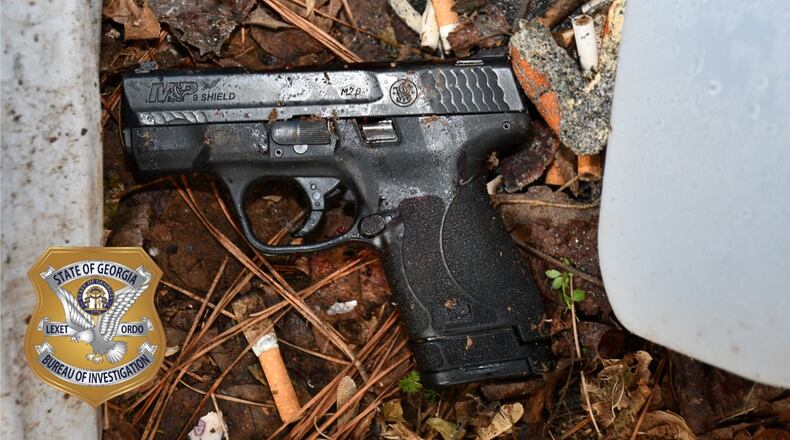The gun used to shoot a trooper during last week’s deadly encounter near Atlanta’s planned public safety training center was purchased by Manuel Teran, the protester who was then killed when authorities returned fire, the Georgia Bureau of Investigation said Monday.
GBI spokeswoman Nelly Miles said the agency confirmed via transaction records that Teran, known to friends as “Tortuguita,” legally purchased the Smith & Wesson in question in September 2020. They later provided a copy of the transaction document.
“We’re providing this update to address the widespread misinformation that is occurring,” Miles wrote in an emailed statement.
Teran, who was 26, is accused of initiating gunfire at state troopers entering the forest Wednesday to conduct a “clearing operation.” A trooper was shot in the abdomen and wounded.
A Georgia State Patrol spokesman said Monday that the trooper, whose identity has not been released, was “resting and in stable condition.”
Teran was killed after several troopers returned fire.
Teran’s death has added fuel to an already tense environment surrounding the Atlanta Police Foundation’s plans to build a $90 million training facility in the southern DeKalb County woods. Six people were arrested Saturday, joining a growing list of activists charged with domestic terrorism after a protest in downtown Atlanta devolved into buildings being vandalized and a police car being set ablaze.
Vigils and rallies were also held in other cities across the country.
The GBI previously said that ballistics testing showed the gun found at the scene of Teran’s death fired the bullet that struck the trooper. But until Monday they had not revealed evidence directly tying the gun to Teran.
The agency’s latest statement, meanwhile, came as activists continue to raise questions about the official version of events.
With Teran described as a kind soul and proponent of nonviolent protest, some have suggested the weapon found near his body may have been planted. Each of the agencies involved in last week’s operation issue Glock firearms, not Smith & Wessons, to their officers.
Activists’ suspicions have also been heightened by the lack of body camera footage from the incident.
The operation that ultimately resulted in Teran’s death involved several law enforcement agencies, including the Atlanta and DeKalb County police departments. But authorities have said only state troopers — who generally are not equipped with body-worn cameras — were involved in the encounter with Teran.
Miles said Monday that “although the shooting is not captured on bodycam, there is bodycam footage of the aftermath.”
A GoFundMe account for Teran’s family, meanwhile, had raised more than $46,000 as of Monday afternoon.
And a group of doctors from Emory University issued its own statement condemning “the repeated escalation of police violence in their interactions with members of the public protesting the construction of Cop City.”
The group included Michel Koury and Amy Zeidan, co-directors of the Georgia Human Rights Clinic, as well as Mark Spencer (co-leader of the Internal Medicine Advocacy Group” and Suhaib Abaz (co-founder of the Campaign Against Racism, Atlanta chapter).
“The public health evidence for developing healthy and thriving communities strongly opposes the expansion of policing and its subsequent violence,” their lengthy statement said, in part. “All Atlanta communities deserve more life affirming investments, not those that value private property over human life.”
About the Author
The Latest
Featured



